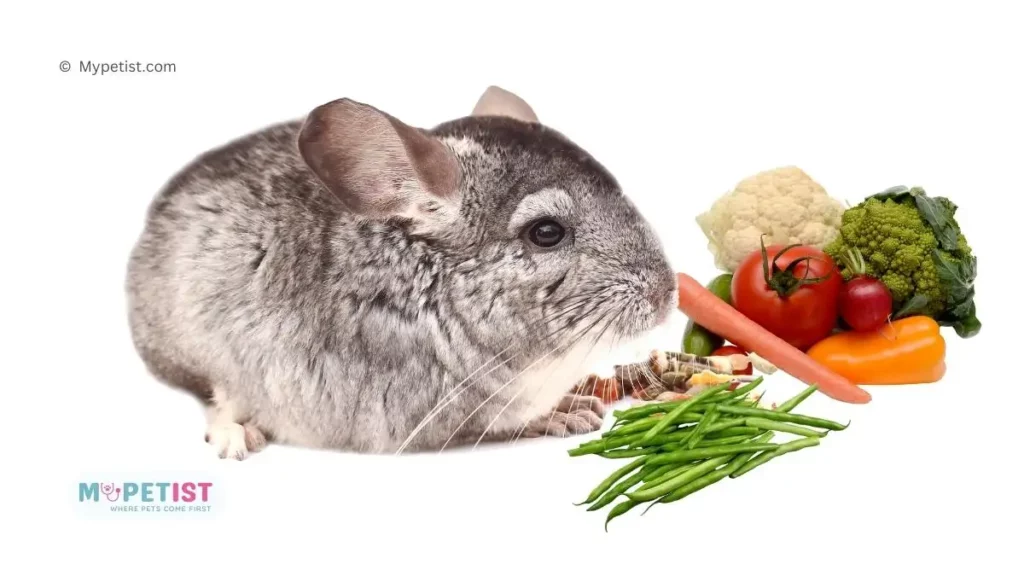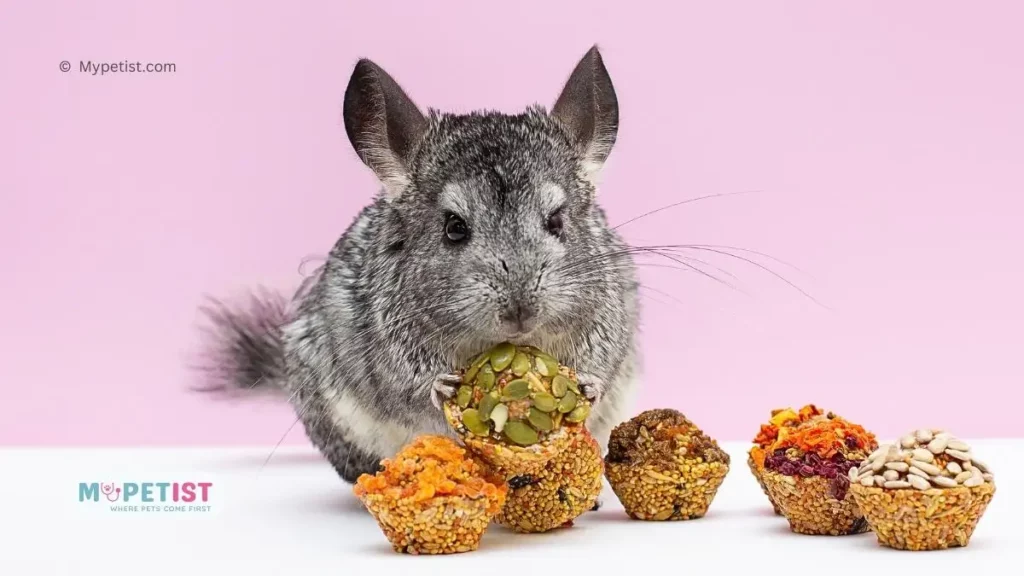Best Chinchilla Food for Sensitive Stomachs
Feed Your Furry Friend Right: Discover the Best Diet for Sensitive Chinchillas!
Proper nutrition plays a crucial role in the overall health and well-being of chinchillas. However, some chinchillas have sensitive stomachs, making it challenging to find the right food that won’t cause digestive issues. In this article, we will explore the best chinchilla food options specifically formulated for sensitive stomachs, helping you provide your furry friend with a diet that promotes optimal digestion and overall health.
Table of Contents
- Best Chinchilla Food for Sensitive Stomachs
- Understanding Chinchilla Digestive System
- Identifying Signs of a Sensitive Stomach in Chinchillas
- Factors to Consider When Selecting Chinchilla Food for Sensitive Stomachs
- Recommended Commercial Chinchilla Food for Sensitive Stomachs
- Homemade Diet Options for Chinchillas with Sensitive Stomachs
- Transitioning to a New Diet
- Supplementing Chinchilla’s Diet for Digestive Health
- Tips for Maintaining a Healthy Diet for Chinchillas with Sensitive Stomachs
- Frequently Asked Questions about Chinchilla Food for Sensitive Stomachs
- Conclusion
Best Chinchilla Food for Sensitive Stomachs
Are you tired of seeing your chinchilla suffer from constant stomach issues? Well, worry no more because we have found the holy grail of chinchilla food for sensitive stomachs! In this article, we will reveal the top picks that will keep your furry friend’s tummy happy and healthy.

Say goodbye to digestive problems and hello to a contented chinchilla who can finally enjoy its meals without any discomfort. Get ready to discover the best options available on the market that are specifically formulated for those with sensitive stomachs! Specially formulated for chinchillas with sensitive stomachs, our top-rated food options provide optimal nutrition and digestive health.
Understanding Chinchilla Digestive System
Chinchillas have a unique gastrointestinal tract that is sensitive to dietary changes and improper nutrition. Their digestive system is designed for a high-fiber diet consisting primarily of grasses and hays. Any deviation from their natural diet can lead to digestive upset and stomach issues. Chinchillas with sensitive stomachs are more prone to such issues, necessitating careful attention to their dietary needs.
Identifying Signs of a Sensitive Stomach in Chinchillas
Recognizing the signs of digestive issues in chinchillas is crucial for early intervention. Common symptoms include loose stools, decreased appetite, weight loss, and a generally unsettled demeanor. Monitoring your chinchilla’s eating habits and behavior can help you identify any potential sensitivity or intolerance issues related to their diet.
Factors to Consider When Selecting Chinchilla Food for Sensitive Stomachs
When choosing chinchilla food for sensitive stomachs, it is essential to avoid ingredients that may trigger digestive distress. Certain foods such as high-sugar treats, nuts, seeds, and fatty foods should be avoided. Instead, focus on providing a high-quality hay that forms the foundation of their diet. It is also important to ensure the food provides balanced nutrition, with adequate levels of fiber, protein, and essential nutrients.
Recommended Commercial Chinchilla Food for Sensitive Stomachs
Kaytee Chinchilla All Natural Dusting Powder

Product Description:
Kaytee Chinchilla All Natural Dusting Powder is the perfect solution for Chinchilla owners. It is a 2.5 lb package of pure volcanic pumice dust that’s essential for your Chinchilla’s health and happiness. Made in the USA, Kaytee Chinchilla Dusting Powder ensures the highest quality and durability. Its fine texture provides superior dust adhesion for effective dust baths and deep cleaning. This promotes optimal skin and coat health, guaranteeing a happy and healthy Chinchilla.
The all-natural volcanic pumice used in Kaytee Chinchilla Dusting Powder offers gentle exfoliation for Chinchilla skin, making it suitable for indoor and outdoor use. It’s perfect for maintaining Chinchilla hygiene and overall well-being. This product is easy to use and maintain, thanks to the convenient resealable bag.
Kaytee Chinchilla Dusting Powder is designed to solve Chinchilla hygiene needs and promote mental stimulation, resulting in happier pets. It measures 2.5 lb and is suitable for Chinchillas of all ages. This product is a must-have for Chinchilla owners who want to provide the best care for their furry friends.
Oxbow Essentials Chinchilla Food

Product Description:
Oxbow Essentials Chinchilla Food is the perfect solution for chinchilla owners looking to provide the best nutrition for their furry friends. This25 lb. bag of chinchilla food is suitable for chinchillas of all ages and sizes, ensuring they receive the high fiber nutrition they need.
Crafted with a nutrient-rich formula, our chinchilla food supports endless vitality, making it ideal for active chinchillas and promoting optimal growth. The unique pellet design also aids in dental wear, ensuring strong teeth and jaw muscles.
It uses 100% all-natural ingredients in our chinchilla food, delivering a balanced diet that promotes a healthy coat and overall well-being. Whether your chinchilla is young or old, our food is suitable for all conditions.
Oxbow Essentials Chinchilla Food is easy to use and maintain, thanks to the resealable bag that keeps the food fresh. Designed to meet your chinchilla’s dietary needs, it’s the perfect choice for responsible pet owners. Made with love and care, this product is sure to keep your chinchilla happy and healthy.
Brand 3: [Insert brand name]

Product Description:
Oxbow Simple Rewards Treats are not only nutritious but also easy to feed and maintain. They are designed to keep your small pets happy and healthy, making them perfect for daily use. Additionally, they encourage mental stimulation and bonding with your beloved pets, and they are ideal for positive reinforcement and training sessions.
Homemade Diet Options for Chinchillas with Sensitive Stomachs
In addition to commercial options, you can consider preparing homemade food for your chinchilla with a sensitive stomach. Homemade chinchilla food allows you to have better control over the ingredients and tailor the diet to your chinchilla’s specific needs. Here are two nutritious recipes for chinchillas with sensitive stomachs:
Chinchillas are delicate creatures, and their digestive systems can be sensitive. While commercial chinchilla food is readily available, making your own balanced homemade meals for your furry friend can provide them with a variety of nutrients and help prevent digestive issues. One recipe that has gained popularity among chinchilla enthusiasts involves mixing pellets, hay, and fresh vegetables together to create a well-rounded meal.
Start by combining high-quality pellet food specifically made for chinchillas with fresh timothy hay. This combination gives your pet the necessary fiber to support healthy digestion. Additionally, adding a small amount of fresh vegetables such as carrots or bell peppers can provide added nutrients and variety to their diet. It’s important to note that while fruits may seem like a tasty treat for chinchillas, they should only be given sparingly due to their high sugar content.
By creating a balanced homemade meal for your chinchilla, you not only ensure they receive the necessary nutrients but also establish a stronger bond through providing them with personalized care. Experimenting with different vegetable combinations can also add excitement and enrichment to their feeding routine. Remember to consult with your veterinarian about any dietary changes or specific nutritional requirements that may benefit your furry companion’s individual needs
Ingredients:
Ingredients play a crucial role in determining the overall quality and suitability of any chinchilla food, especially for those with sensitive stomachs. While it may be tempting to opt for the cheapest option available, it’s important to understand that not all ingredients are created equal. Look for chinchilla foods that contain wholesome and natural ingredients such as Timothy hay, alfalfa pellets, and various herbs.
Many commercial chinchilla foods often contain fillers like corn or wheat that can cause digestive issues in sensitive individuals. Instead, choose brands that prioritize high-quality ingredients specifically formulated for chinchillas with delicate stomachs. Avoid artificial additives, flavors, and preservatives as they can lead to gastrointestinal distress.
One overlooked ingredient to consider is flaxseed oil which is rich in Omega-3 fatty acids known for their anti-inflammatory properties. Including flaxseed oil in your chinchilla’s diet can help soothe any existing digestive issues and promote a healthy gut environment while boosting their overall immune system.
Remember, providing your chinchilla with the best food starts by carefully examining the ingredients list and opting for products containing nourishing elements suited to their unique dietary needs.
Preparation:
When it comes to providing the best chinchilla food for sensitive stomachs, preparation is key. Before introducing any new food to your furry friend’s diet, it’s important to prepare both mentally and physically. Start by researching the nutritional needs of chinchillas with sensitive stomachs, as well as common food ingredients that could potentially trigger a negative reaction. This will allow you to make informed decisions when selecting and preparing their meals.
Once you have gathered all the necessary information, it’s time to physically prepare your chinchilla’s food. Ensure that all utensils and containers are clean and free from any residue that could contaminate the food or irritate their sensitive digestive system. Additionally, consider introducing new foods gradually rather than making sudden changes in their diet. This will give their stomach ample time to adjust and minimize the chances of digestive issues occurring.
In summary, taking proper precautions during the preparation phase is crucial when selecting chinchilla food for sensitive stomachs. By conducting thorough research on their dietary needs and being mindful of cleanliness and gradual introductions, you can ensure your beloved pet stays healthy and happy by avoiding any potential complications related to their digestion.
Feeding guidelines:
When it comes to feeding your chinchilla with a sensitive stomach, it is crucial to follow specific guidelines that can help maintain their overall health and well-being. First and foremost, always opt for high-quality chinchilla pellets that are specifically designed for sensitive stomachs. These pellets are usually made with easily digestible ingredients and contain fewer additives or artificial colorings, which can cause digestive distress. Furthermore, make sure to introduce any new food gradually into your chinchilla’s diet as sudden changes may upset their delicate digestive system.
Aside from pellets, hay should also be an essential part of your chinchilla’s diet. Not only does it provide the necessary fiber to aid digestion, but it also helps wear down their continuously growing teeth. Timothy hay is recommended for chinchillas with sensitive stomachs due to its low protein and fat content. Avoid giving them too much alfalfa hay as it is higher in protein and calcium, which can lead to urinary tract problems.
Lastly, fresh water should always be available for your furry friend. Ensure that the water is clean and free from any contaminants by regularly replacing it throughout the day. Remember not to provide cold water directly from the fridge as extreme temperature changes can cause discomfort or even shock in sensitive chinchillas’ systems. By following these feeding guidelines consistently, you will help prevent gastrointestinal issues in your beloved pet while ensuring their nutritional needs are met adequately.
Transitioning to a New Diet
When introducing a new diet to your chinchilla, it is crucial to do so gradually. Abrupt diet changes can upset their sensitive stomachs and lead to digestive issues. Follow these step-by-step guidelines to ensure a smooth transition:
- Start by mixing a small amount of the new food with the current food.
- Gradually increase the proportion of the new food while decreasing the old food.
- Monitor your chinchilla’s response and adjust the transition speed accordingly.
Supplementing Chinchilla’s Diet for Digestive Health
In addition to providing appropriate food, you can supplement your chinchilla’s diet with digestive health products. Probiotics and digestive enzyme supplements can help promote a healthy gut flora and aid in digestion. Consult your veterinarian for suitable supplements and appropriate dosage for your chinchilla.
Tips for Maintaining a Healthy Diet for Chinchillas with Sensitive Stomachs
Maintaining a healthy diet for chinchillas with sensitive stomachs goes beyond selecting the right food. Consider the following tips to ensure your chinchilla’s digestive health:
- Proper storage of chinchilla food to maintain freshness and prevent contamination.
- Monitor your chinchilla’s weight and overall health regularly to detect any changes.
- Schedule regular veterinary check-ups to address any potential issues or concerns.
- Common Mistakes to Avoid When Feeding Chinchillas with Sensitive Stomachs
While focusing on providing the best diet for your chinchilla, it is important to avoid common mistakes that can harm their digestive health:
- Overfeeding chinchillas with treats can disrupt their sensitive stomachs and lead to weight gain.
- Abrupt diet changes without a gradual transition can cause digestive distress.
- Ignoring signs of digestive distress such as changes in appetite or stool consistency.
Frequently Asked Questions about Chinchilla Food for Sensitive Stomachs
Can I feed my chinchilla human food if they have a sensitive stomach?

Certainly! Feeding your chinchilla human food can be risky, especially if they have a sensitive stomach. Stick to their specialized diet of high-fiber hay and consider commercial options designed for sensitive stomachs. Avoid foods high in sugar and fats to keep your chinchilla’s digestion in check.
How often should I change my chinchilla’s diet?
You should change your chinchilla’s diet gradually. Abrupt diet changes can upset their sensitive stomachs and lead to digestive issues. Start by mixing a small amount of the new food with their current food, then gradually increase the proportion of the new food while decreasing the old food. Monitor your chinchilla’s response and adjust the transition speed accordingly.
Can chinchillas with sensitive stomachs eat fruits and vegetables?
Yes, chinchillas with sensitive stomachs can eat fruits and vegetables, but it’s essential to introduce these foods gradually and in moderation to prevent digestive issues.
Conclusion
Providing the best chinchilla food for sensitive stomachs requires careful consideration of their unique dietary needs. By understanding their digestive system, selecting appropriate commercial or homemade food, and incorporating gradual transitions, you can help maintain optimal digestive health for your chinchilla. Regular monitoring and veterinary guidance will ensure that your chinchilla’s dietary needs are met, promoting overall well-being and happiness.





🐾 Discover the best chinchilla food for sensitive stomachs! Keep your furry friend healthy and happy with our expert recommendations. Read more at: https://www.mypetist.com/best-chinchilla-food-for-sensitive-stomachs/
.
.
Don’t forget to follow us for more pet tips! 😊👍
#mypetist #ChinchillaCare #PetNutrition #SensitiveStomach #HealthyPets #PetLovers #ChinchillaDiet #FurryFriends